Advertisement
Santiago A Mil
In Chile, Theater And Politics Collide At The Santiago A Mil International Festival
Resume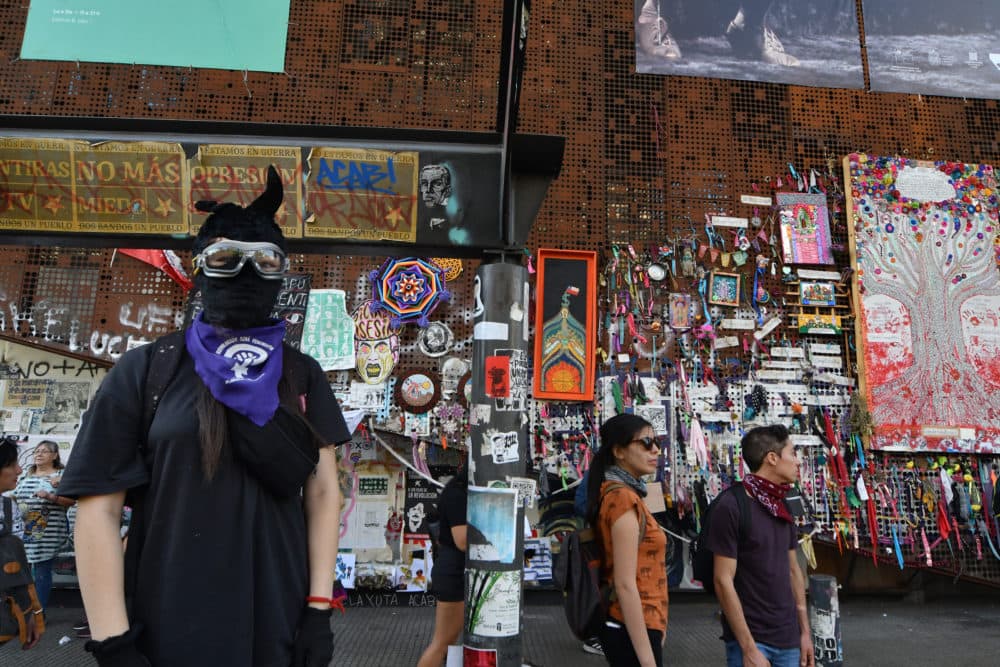
On a hot January evening in a theater on the outskirts of Santiago, an audience sits rapt for a performance of “Plata Quemada,” a four-man play by the Chilean theater company Teatrocinema about a bank heist gone wrong. Following a bloody “Bonnie and Clyde”-style denouement, the actors walk onstage for their curtain call. Each places a hand solemnly over one eye.
The familiar gesture is a reference to the demonstrations that have rocked Chile since October. During the protests, police aimed rubber bullets at protesters’ eyes, injuring and in some cases blinding them. The eye became a symbol of the uprising.
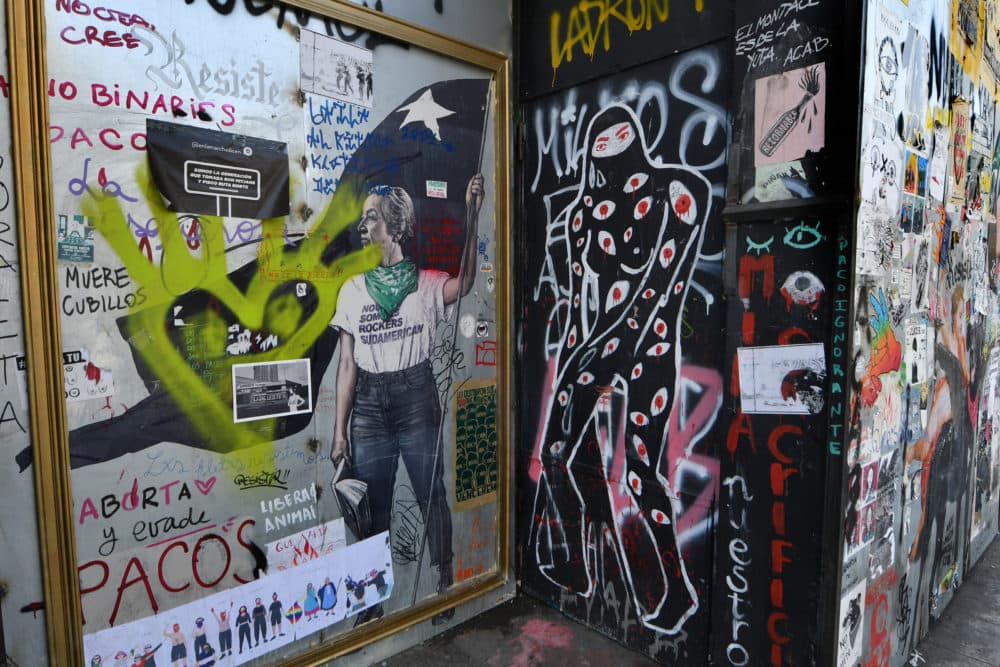
“Plata Quemada” is one of the more than a hundred productions playing around the city for the Santiago a Mil International Festival. The festival, which was founded in 1994 with the aim of providing cheap, accessible theater to Chilean audiences, has since grown to become one of the premiere performing arts festivals in Latin America. This year, the three-week event unfolds in the midst of Chile’s biggest political upheaval in decades, sparked by student protests against subway fare hikes.
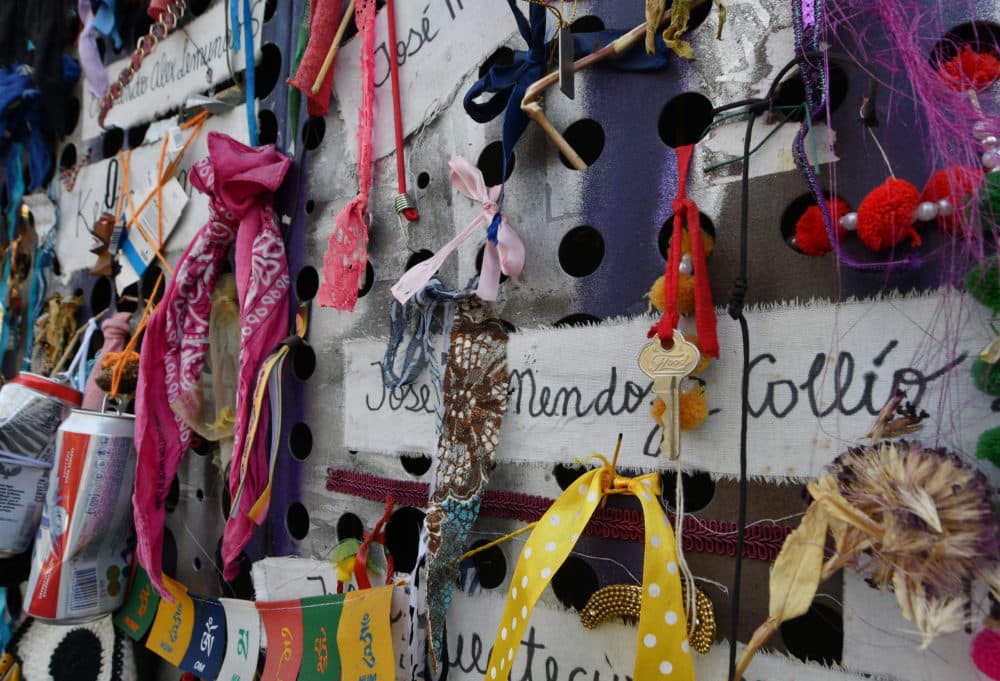
The festival’s official theme is “the power of acting,” but the country’s social crisis is never out of mind — or sight. The Gabriela Mistral Cultural Center in downtown Santiago, where Santiago a Mil is headquartered, is plastered in political art. Its perforated steel exterior flutters with ribbons and flags. All down the boulevard, shops are shuttered, the casualties of massive weekly protests against wealth inequality, privatized social services and police brutality. The streets are a gush of color and dissent, from anti-cop graffiti to feminist slogans to the ever-present image of the eye.
In this tense environment Santiago a Mil soldiers on. It’s the final week of the festival, when arts presenters from around the globe converge on the city in search of cutting-edge new work to bring home. They include David Dower, the artistic director of ArtsEmerson, who has been coming to the festival for five years. For Dower, part of the allure of Santiago a Mil is Chile’s scrappy, nimble theater scene.
“It’s speaking to this moment every time,” Dower says. “So when you come, there's an electricity of what's in the air, what's in the street and what’s in the theater.”
The festival’s lineup is certainly not lacking in political content. Some of the performances are political in the sense that they grapple with gender or race, but others deal directly with Chile’s history, even going so far as to take an activist stance. The surreal sci fi production "2118, Tragedia Futurista," for example, revolves around an anarcho-feminist fighter who travels back in time to assassinate major political figures in an attempt to change the course of Chilean history.

“I think that theater should speak about all the things that are wrong in this country, in this world,” says Carla Zúñiga, the play’s 33-year-old playwright.
Zúñiga believes deeply in theater’s radical possibilities, even as she sometimes doubts if her work makes any real difference. “The plays that we do, the audience is people who [think] like me. So that is really frustrating sometimes,” she says.
In other words, even if you're making radical theater, chances are you're just preaching to the choir.
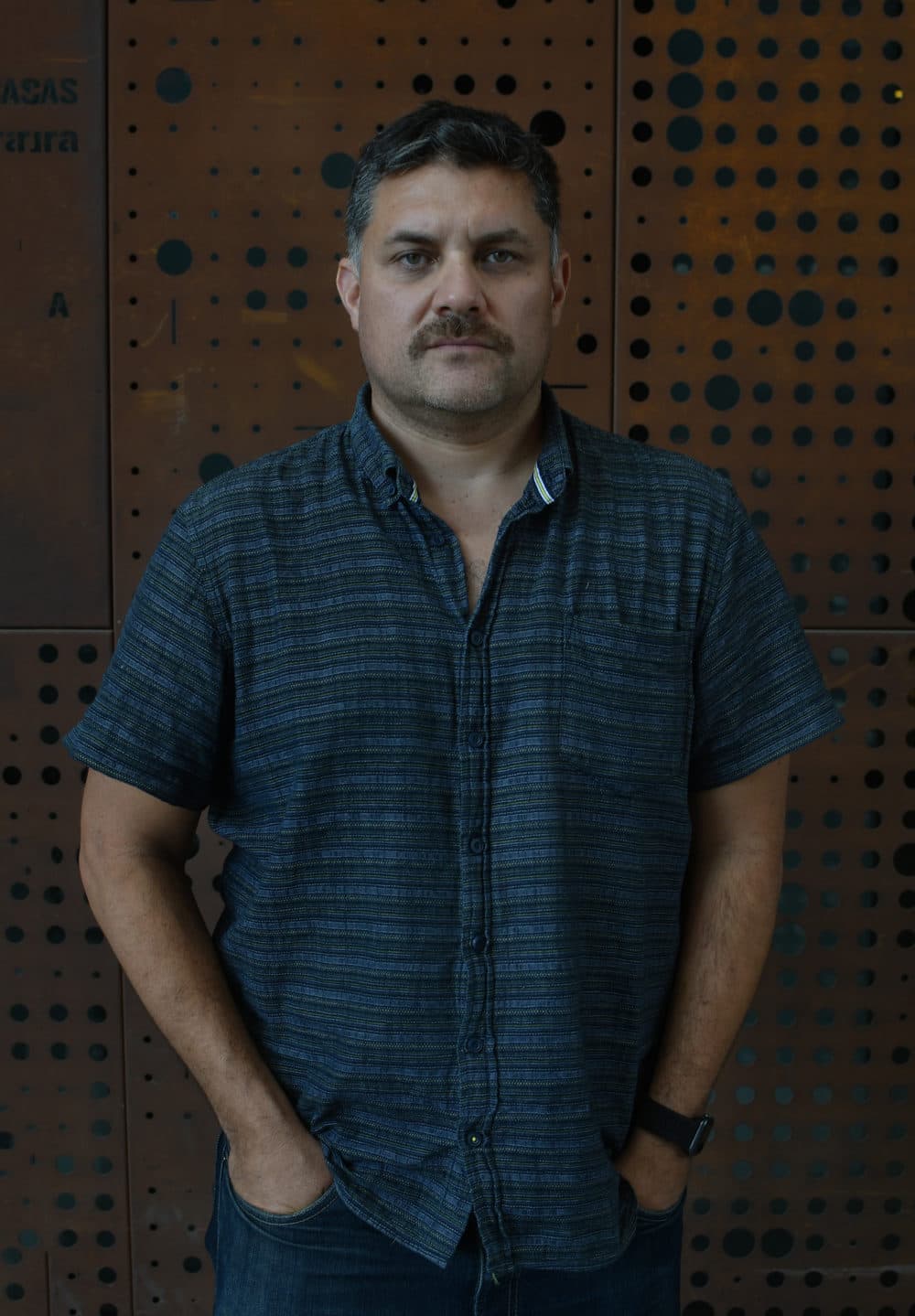
“And that is very paralyzing and depressing, because we see theater as an extension of, basically, political struggle,” says the Chilean playwright and director Guillermo Calderón, whose play “Dragón” was featured at Santiago a Mil. Like Zúñiga, Calderón writes with a political mindset — although, at age 48, he has a different perspective. He was a child when General Augusto Pinochet took control of Chile in a US-backed military coup in 1973. Though the dictator’s reign ended in 1990, Calderón says the effects of that brutal period remained on playwrights’ minds.
“A lot of people were doing political theater, not because we were nostalgic, but because we saw, in a way, the dictatorship had never truly ended,” he says. “We did the political theater out of anger and a sense of foreboding, maybe, and also a sense of, I don’t know, setting off the alarm, in a way.”
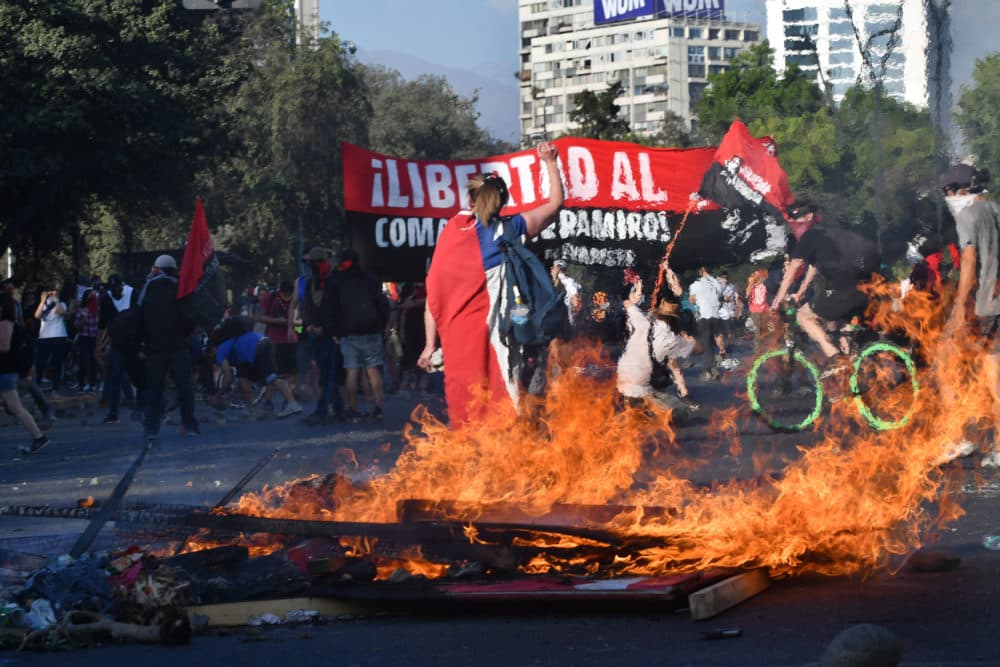
Then the 2019 protests broke out. They were, at their core, an eruption of anger at Chile’s stark economic disparities, the result of free-market policies instituted under Pinochet. When that happened, “politicians and people in the media said, ‘Oh we never saw this coming, we never saw a sign,’” Calderón says. “And for us it was a sense of failure again because we had been telling [them] this for years now, for decades. But [they] never listened. So we failed that way.”
Calderón, who once wrote a play with the aim of freeing a political prisoner, is not one to be easily defeated. But Chile’s political rupture can sometimes make him question his vocation. “[The movement is] so huge, it’s so theatrical, it’s so immense, that our theater, our ways of working, are not up to the task of saying something worthwhile about this whole mess,” he says.
That’s partly because making theater takes time, he explains; you have to digest things, consider what you want to say. Then you have to write it all down. He thinks that maybe, with time, playwrights will find a way to make sense of the political upheaval. But for now, all they can do is live it.
Correction: An earlier version of this piece misstated Augusto Pinochet's name. We regret the error.
This segment aired on March 10, 2020.
